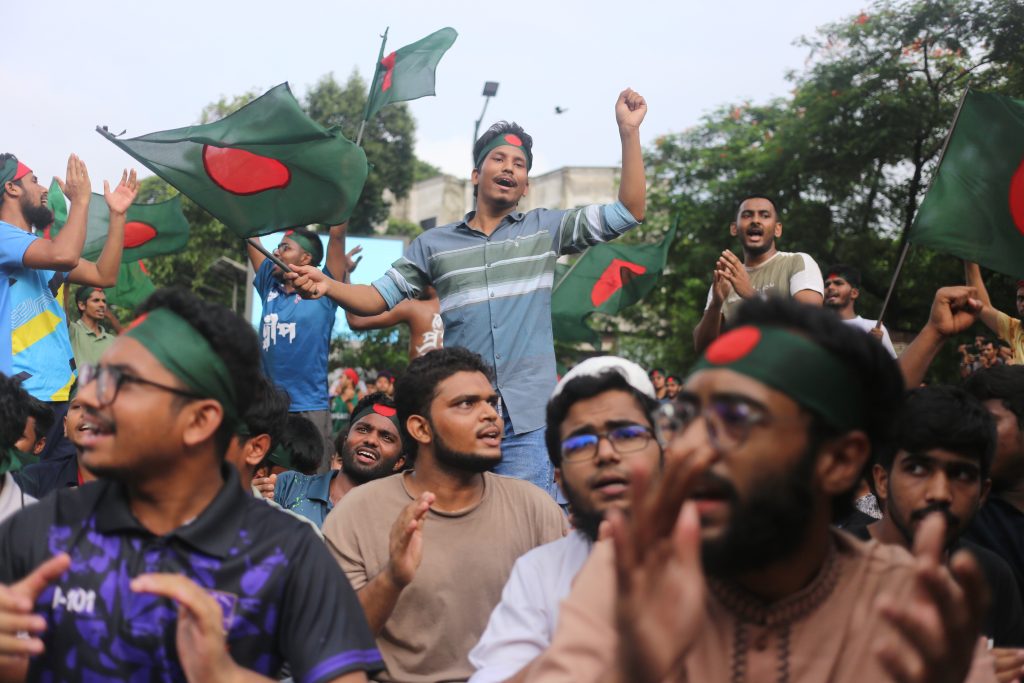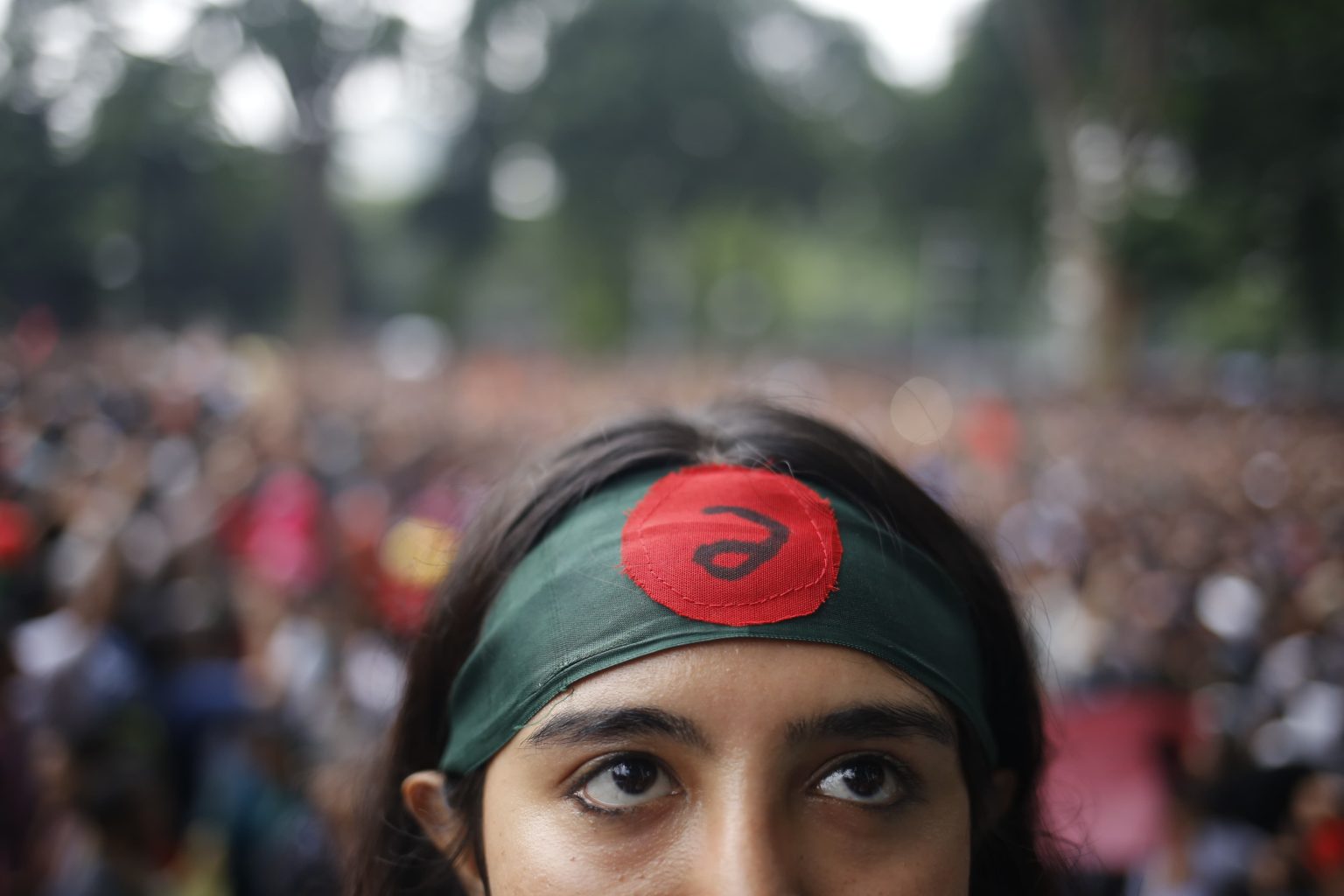What began as a peaceful demand for justice over a long-contested quota system in government jobs has transformed into one of the most significant and turbulent political uprisings in Bangladesh’s recent history.
At the heart of the storm are thousands of students—young, defiant, and determined—demanding reform, accountability, and a voice in a system that many say has failed them. But the state’s response has been swift and unforgiving.
By the morning of July 27, 2024, the Detective Branch (DB) of police had taken into custody two more key student coordinators: Sarjis Alam and Hasnat Abdullah. Their arrest, according to DB officials, was “for interrogation” and ostensibly “for their own safety.” But to the movement, it signaled something more ominous—an escalation.
This followed the previous day’s detention of three other prominent figures: Nahid Islam, Asif Mahmud Shojib Bhuyain, and Abu Baker Majumdar. All were deeply involved in organizing the protests that had rocked campuses and cities across the nation.
As the news broke, student leaders convened an emergency online press conference, forcefully rejecting the government’s newly released gazette notification on quota reform. The students claimed it failed to reflect either the court’s directive or their central demand—to establish an independent commission to oversee and reform the system.
“Our principal demand was a commission. That has not been addressed,” said Mahin Sarkar, one of the leading voices of the movement.
“Over 3,000 students have been arrested. These are our classmates, our friends. The government calls us arsonists—but it is the state that is burning the youth of this country,” added Abdul Hannan Masud, another coordinator.
The student movement then issued a 24-hour ultimatum to the government. Their demands were clear:
Immediate release of detained students and leaders, withdrawal of fabricated cases against protesters and accountability for the killings during the protests
What shocked many—both within Bangladesh and abroad—was the scale of violence that followed. The students reported at least 266 deaths during the protests, a figure still contested but widely cited by movement leaders and human rights groups.
In response, the protestors announced the formation of two nationwide support initiatives: A “Health Force”, to provide medical, financial, and psychological aid to victims’ families.
A “Legal Force”, to document abuses, provide legal aid, and fight back against what they called a campaign of state persecution.
By the end of July 27, according to the Dhaka-based newspaper Bonik Barta, the state had filed 736 cases, made over 2,500 arrests in Dhaka alone, and detained at least 7,000 people nationwide. The Rapid Action Battalion (RAB) contributed to the sweeping arrests, with an additional 71 people detained in overnight operations.
The government responded by imposing a curfew, later relaxing it from 8 a.m. to 5 p.m., and shortening office hours. Public life ground to a halt as armored vehicles patrolled the streets, internet access slowed, and panic spread through university campuses.
Amid the chaos, a 12-member delegation from the University Teachers’ Network attempted to visit the detained students. They were denied access.
Even Nobel Laureate Professor Muhammad Yunus, now serving as Chief Adviser to the interim government, weighed in. In a televised interview with The Hindu (India), he called for a fresh election and urged the international community to intervene to stop what he described as “state-led bloodshed.”

The protest wave drew global attention. In an unprecedented move, 14 foreign missions in Dhaka—including those of the United States, United Kingdom, Germany, France, Australia, and the European Union—issued a joint letter to Foreign Minister Hasan Mahmud, expressing “deep concern and sorrow” over the violence.
Simultaneously, over 140 global intellectuals, academics, and writers signed a petition addressed to UN High Commissioner for Human Rights Volker Türk, demanding immediate international scrutiny and intervention.
At home, opposition leaders were unrelenting. BNP Secretary General Mirza Fakhrul Islam Alamgir directly blamed the government for the killings, calling for its immediate resignation.
“The government has chosen the path of barbaric repression. Students are being tortured to instill fear,” he said.
Progressive alliances, including the Left Democratic Alliance, Anti-Fascist Left Alliance, and Jatiya Samajtantrik Dal (JaSad), condemned the detentions as “unprecedented and disgraceful.” Women’s rights groups, including the CPB Women’s Cell and Socialist Women’s Forum, demanded the unconditional release of all detained students.
What distinguishes this movement is not just the scale of protest or the severity of the crackdown—but the sheer moral urgency it has ignited. A generation of young people has stood up not merely for their rights but for the idea of justice in Bangladesh.
In the face of state suppression, the protestors have forged an unlikely coalition—students, teachers, intellectuals, foreign diplomats, and ordinary citizens—all united by a shared belief: that silence is complicity.
As July 2024 closed, Bangladesh stood at a crossroads. One path leads to further repression. The other—to justice, reconciliation, and reform. For now, the students remain on the streets, their chants echoing through the alleyways and online streams of a restless nation.


